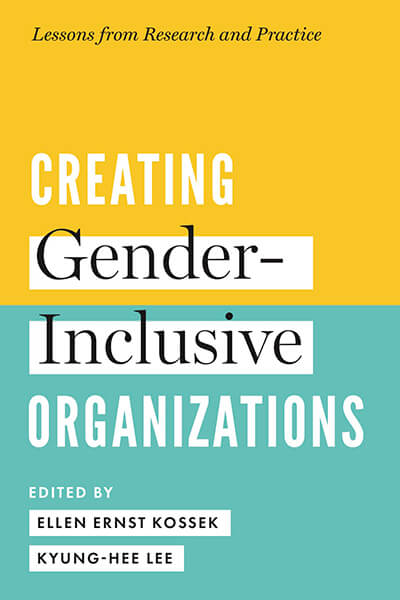June 22, 2020
After the pandemic, women who work from home could face career penalties

WHAT: Before the COVID-19 pandemic, only 7% of the United States workforce had access to work-from-home policies and other workplace flexibility benefits. Now, about half of Americans are working remotely. With work-home boundaries increasingly overlapping for telework and many women experiencing job loss, a recent U.N. report shows a negative pandemic effect on gender equality as women’s unpaid care work has increased. Companies with plans to roll out work-from-home policies on a wide scale after the pandemic must plan to adjust their workplace cultures, says a Purdue University expert on inclusive organizations.
 Ellen Ernst Kossek, Purdue University’s Basil S. Turner Professor of Management, is co-editor of the new book “Creating Gender-Inclusive Organizations.” (Courtesy photo)
Download image
Ellen Ernst Kossek, Purdue University’s Basil S. Turner Professor of Management, is co-editor of the new book “Creating Gender-Inclusive Organizations.” (Courtesy photo)
Download image
EXPERT: Ellen Ernst Kossek, Purdue University’s Basil S. Turner Professor of Management, is an expert and author on workplace equality, gender equity and work-life balance. She is co-editor of the new book, “Creating Gender-Inclusive Organizations,” with Kyung- Hee Lee, a research scholar at Purdue. Kossek says women are more likely to take advantage of work-from-home policies and are more likely to use them for personal and family reasons, such as managing child care, supervising homework or making dinner.
QUOTE: “Women are heavier users of workplace flexibility in part because they still cover more family demands. If companies don’t adapt their cultures as we reopen from the pandemic, it could hold women back, as well. Research shows that if you’re using telework and flexibility to finish a project late at night, managers love you; if you’re using it for family or personal reasons, they stigmatize you and think you’re not career-oriented. We have to think about how to empower people to talk about work boundaries and enact work in ways that fit their gender and family identities. We have very embedded career cultures that were started years ago with a primarily male, breadwinner family configuration. An unintended consequence of the pandemic is employment cultures could regress on the social progress that was being made on gender equality examined in our book.”
 Ellen Ernst Kossek. (Courtesy photo)
Download image
Ellen Ernst Kossek. (Courtesy photo)
Download image
MORE INFORMATION:
- Kossek is the Basil S. Turner Professor of Management in the Krannert School of Management.
- A trailer for her new book is available on YouTube.
About Purdue University
Purdue University is a top public research institution developing practical solutions to today’s toughest challenges. Ranked the No. 6 Most Innovative University in the United States by U.S. News & World Report, Purdue delivers world-changing research and out-of-this-world discovery. Committed to hands-on and online, real-world learning, Purdue offers a transformative education to all. Committed to affordability and accessibility, Purdue has frozen tuition and most fees at 2012-13 levels, enabling more students than ever to graduate debt-free. See how Purdue never stops in the persistent pursuit of the next giant leap at purdue.edu.
Writer: Joseph Paul, paul102@purdue.edu (working remotely but will provide immediate response)
Source: Ellen Ernst Kossek, ekossek@purdue.edu (available for phone and webcam interviews)
Note to Journalists: An image of the book cover and a photograph of the professor is available to journalists via a Google Drive folder. A trailer for new book is available to view via a YouTube link.

